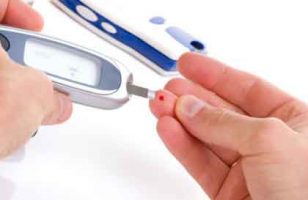- Home
- Editorial
- News
- Practice Guidelines
- Anesthesiology Guidelines
- Cancer Guidelines
- Cardiac Sciences Guidelines
- Critical Care Guidelines
- Dentistry Guidelines
- Dermatology Guidelines
- Diabetes and Endo Guidelines
- Diagnostics Guidelines
- ENT Guidelines
- Featured Practice Guidelines
- Gastroenterology Guidelines
- Geriatrics Guidelines
- Medicine Guidelines
- Nephrology Guidelines
- Neurosciences Guidelines
- Obs and Gynae Guidelines
- Ophthalmology Guidelines
- Orthopaedics Guidelines
- Paediatrics Guidelines
- Psychiatry Guidelines
- Pulmonology Guidelines
- Radiology Guidelines
- Surgery Guidelines
- Urology Guidelines
Alcohol 3-4 days per week could lower diabetes risk- Study

Who knew alcohol consumption could also have a positive impact on our health? It’s not every day that medical studies say alcohol could be good for you, but according to a recent study, drinking alcohol can significantly protect against diabetes. Frequent alcohol consumption is associated with a reduced risk of diabetes in both men and women, according to the study, with alcohol consumption over three-four days a week gives the lowest risk of diabetes.
Previous studies have consistently suggested that light to moderate alcohol consumption — in terms of amount consumed — is associated with a lower risk of diabetes compared with abstention in men and women. Heavy consumption is associated with a risk greater than or equal to that of abstainers. However, previous studies examining the role of drinking patterns (number of days drinking per week rather than volume) in relation to diabetes risk have given inconsistent findings, and studies on the effects of particular types of beverage are likewise inconclusive. Alcohol was also associated with an increased risk of breast cancerand ageing.
The present study, by Professor Janne Tolstrup and colleagues from the National Institute of Public Health of the University of Southern Denmark, examined the effects of drinking frequency on diabetes risk, and also considered association with specific beverage types.
The study used data from the Danish Health Examination Survey (DAHNES) from 2007-2008, in which Danish citizens aged 18 and above completed a self-reporting questionnaire, including items on lifestyle and health. Those who already had diagnosed diabetes were excluded, as were women who were pregnant or had recently given birth (likely to result in a change in drinking habits). The study comprised 70,551 DAHNES participants who had given details of alcohol consumption. Follow-up information, continued until 2012 with a median follow-up of 4.9 years, was gathered via linking to Danish nationwide registries.
During follow-up, 859 men and 887 women developed diabetes. In terms of weekly alcohol amount, the current findings mirrored those of previous studies — the lowest risk of developing diabetes being found in individuals consuming moderate amounts of alcohol. Men consuming 14 drinks per week were found to have a 43% lower risk of diabetes relative to no alcohol intake, and women consuming 9 drinks per week had a 58% lower risk compared with women who did not drink at all.
In terms of frequency, the data revealed that consumption of alcohol three to four days a week gave the lowest risk of diabetes — a 27% lower risk in men and a 32% lower risk in women — when compared to individuals drinking less than one day per week. The study found no clear evidence of an association between binge drinking and diabetes risk, which the authors suggest may be due to low statistical power since few participants reported binge drinking.
Regarding beverage type, moderate to high intake of wine was associated with a lower risk of diabetes, in line with previous studies. The authors suggest that this might be due to a beneficial effect that polyphenols in wine have on management of blood sugar, giving red wine in particular a potential protective impact. Men and women who consumed seven or more drinks of wine per week had a 25 to 30% lower risk of diabetes compared with those having less than 1 drink of wine per week.
Consuming between one and six beers per week gave a 21% lower risk of diabetes in men compared with men drinking less than one beer per week, while beer was not associated with diabetes risk in women. The authors found no statistically significant association between average weekly alcohol amount of spirits and diabetes in men. In women, however, having seven or more drinks of spirits per week was associated with an 83% increased risk of diabetes when compared with women consuming less than one drink of spirits per week.
The authors conclude: “Our findings suggest that alcohol drinking frequency is associated with the risk of diabetes. Consumption of alcohol over three to four weekdays is associated with the lowest risks of diabetes, even after taking average weekly alcohol consumption into account.” The findings have been published in Diabetologia (the journal of the European Association for the Study of Diabetes).

Disclaimer: This site is primarily intended for healthcare professionals. Any content/information on this website does not replace the advice of medical and/or health professionals and should not be construed as medical/diagnostic advice/endorsement or prescription. Use of this site is subject to our terms of use, privacy policy, advertisement policy. © 2020 Minerva Medical Treatment Pvt Ltd